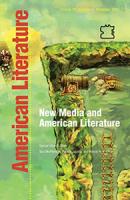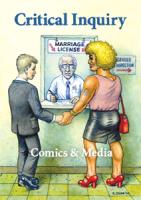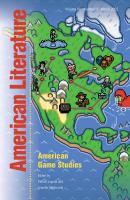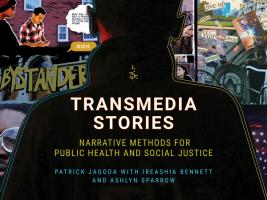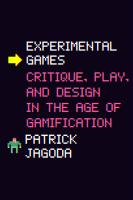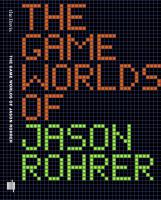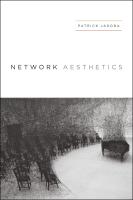
Synopsis
I specialize in media theory, game studies and design, science studies, and twentieth and twenty-first century American literature and culture. Alongside this position, I am the co-founder of the Game Changer Chicago Design Lab. I also serve as co-editor of the interdisciplinary journal Critical Inquiry. I am Chair of Cinema and Media Studies, faculty director of the Weston Game Lab, and director of the Media Arts and Design program at the University of Chicago. I have helped develop game studies and game design at the University of Chicago, including as a co-founder of the Fourcast Lab collective that designs alternate reality games about topics such as climate change and epidemiology. Along with the English department, I am also a professor of Cinema & Media Studies and Obstetrics and Gynecology at the University of Chicago, as well as an affiliate of the Center for the Study of Gender and Sexuality.
Research
Patrick Jagoda works on fields of digital media studies, game studies and game design, and twentieth and twenty-first century American culture, literature, and design. He is currently co-editor of Critical Inquiry and Director of the Media Arts and Design program and the Weston Game Lab. Jagoda was the recipient of a Guggenheim Fellowship. Among his design work, he co-directed and co-designed Terrarium — an alternate reality game that received the IndieCade award for the best Location Based and Live Play Design.
Jagoda’s books include Network Aesthetics (University of Chicago Press, 2016), The Game Worlds of Jason Rohrer (MIT Press, 2016, co-authored with Michael Maizels), Experimental Games: Critique, Play, and Design in the Age of Gamification (University of Chicago Press, 2020), and Transmedia Stories: Narrative Methods for Public Health and Social Justice (Stanford University Press, 2023).
Network Aesthetics examines American narrative, visual, and interactive artworks that encourage a critical and transformative engagement with the network as a dominant category of life since the mid-twentieth century. Though networks seem more appropriate to fields such as computer science and mathematics, they have also occupied a central place in the humanities. The book undertakes a comparative media analysis of the way that popular cultural forms, including the novel, film, television serial, videogame, and transmedia narrative have kept pace with science and mediated our experience of networks.
Experimental Games explores the rise of “gamification” in American culture. Gamification, a term that derives from behavioral economics, is the use of game mechanics in traditionally non-game activities. Though gamification is the starting point, the core of the project focuses on an aesthetic study of digital games that deviate from an instrumental and behaviorist approach, experimenting instead with more complex affects, experiences, and possibilities of play. Each chapter of the book focuses on a key concept for game studies, including experimentation, choice, control, difficulty, failure, and improvisation.
Transmedia Stories is an open access and multimedia book that explores how narrative methods taken from the humanities can be used in areas ranging from the social sciences to public health to activism. This work draws on over a decade of collaborative game design, community storytelling, and creative workshops that yielded everything from short-form autobiography documentaries to video games co-created with BIPOC youth on the South Side of Chicago. The book examines forms for sociopolitical intervention that include story circles, digital storytelling, narrative video games, transmedia history, speculative design, and alternate reality games. The core cases demonstrate how design thinking and participatory culture have not grappled sufficiently with cultural difference, including along lines of race, gender, and sexuality.
Beyond scholarship, Jagoda has co-launched several university-based digital media labs, including the Weston Game Lab and the Fourcast Lab, and previously the Game Changer Chicago Design Lab and the Transmedia Story Lab.
Select Games and Creative Works
Haven (interactive narrative game about open inquiry), 2024 and 2025
Hexacago Health Academy (board and card game series about public health), 2025
Caduceus Quest (digital roleplaying game prototype for youth underrepresented in STEM fields), 2025
Encounter (game-based playable theater piece), 2024
Cene (transmedia game about climate change), 2022
ECHO (transmedia game about COVID-19), 2020
A Labyrinth (transmedia game in response to COVID-19), 2020
Terrarium (transmedia game about climate change), 2018-2019
For a full set of video games, board games, digital storytelling, and playable theater, see Patrick Jagoda’s website. (http://www.patrickjagoda.com/projects)
Teaching
2025-2026 Courses
- Critical Videogame Studies
- Digital Media Aesthetics
Previously taught courses
- Introduction to Game Design
- Alternate Reality Games: Theory and Production
- Digital Storytelling
- Digital Media Theory
- Imagining Futures: Speculative Design and Social Justice
- Climate Change in Media and Design
- Black Game Theory
- Politics of Media: From the Culture Industry to Google Brain
- New and Emerging Genres

